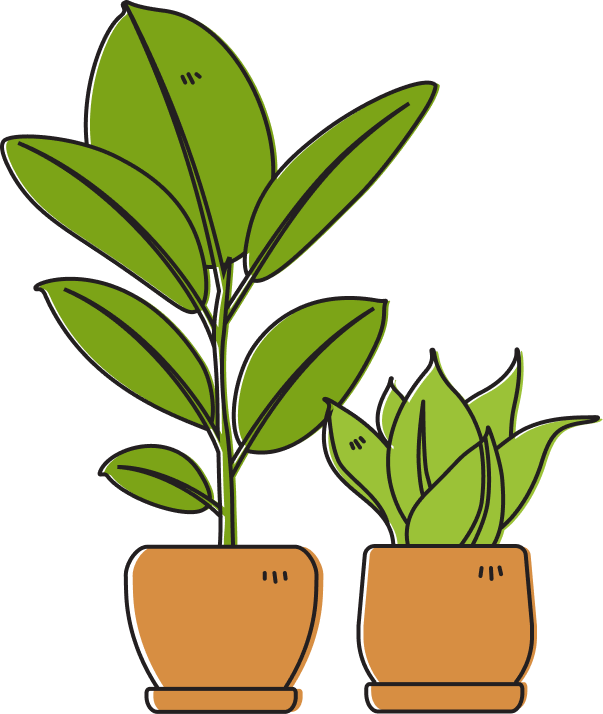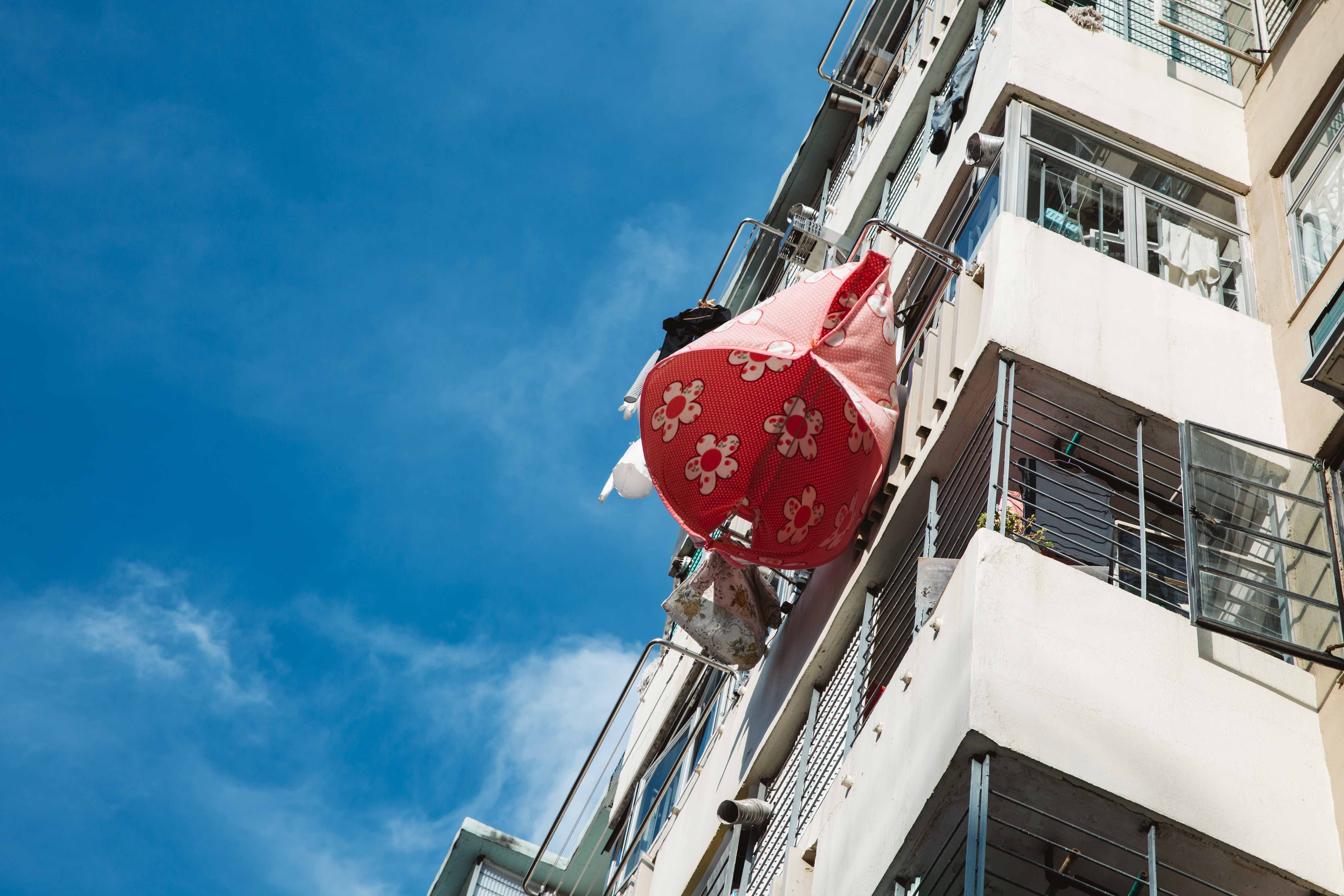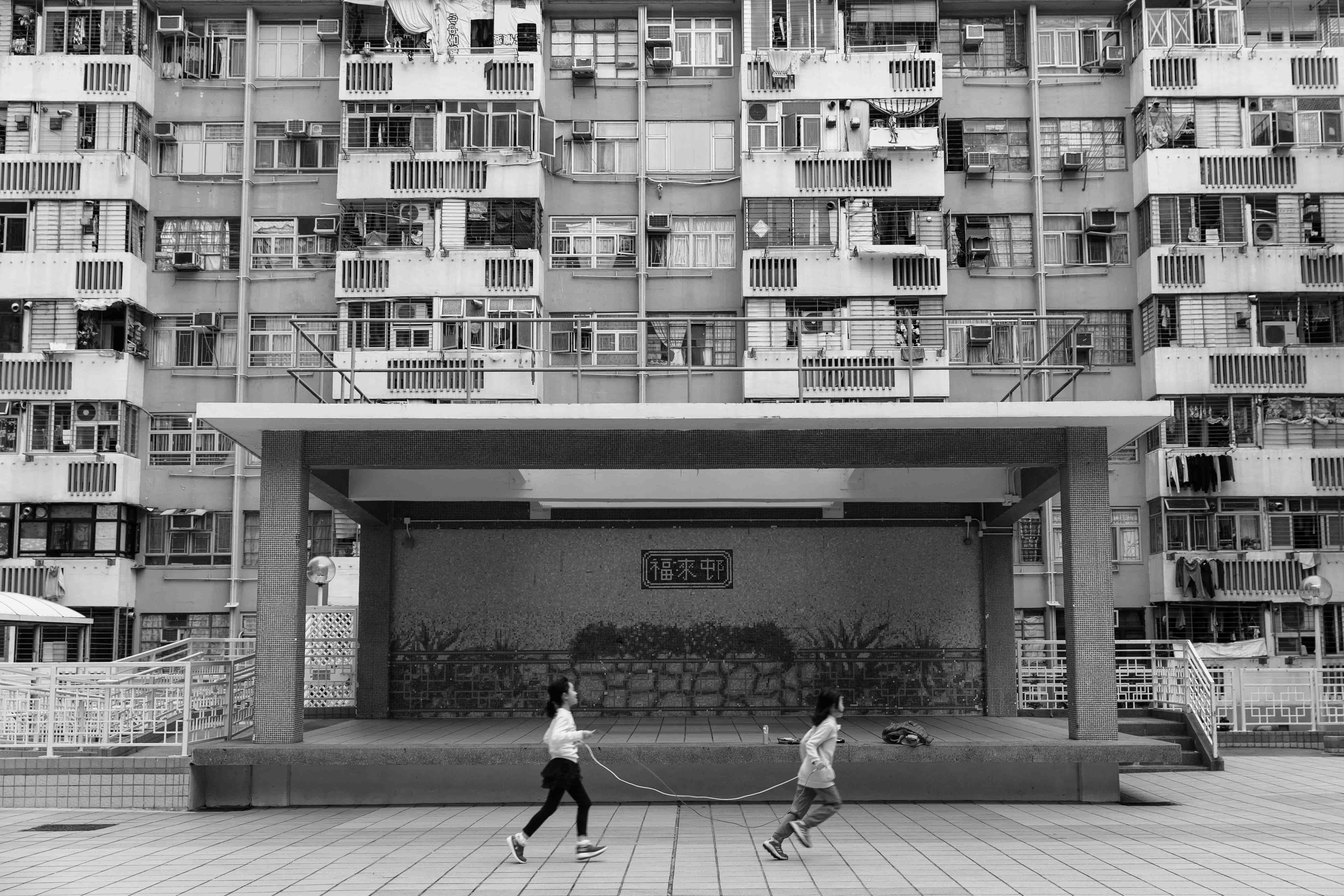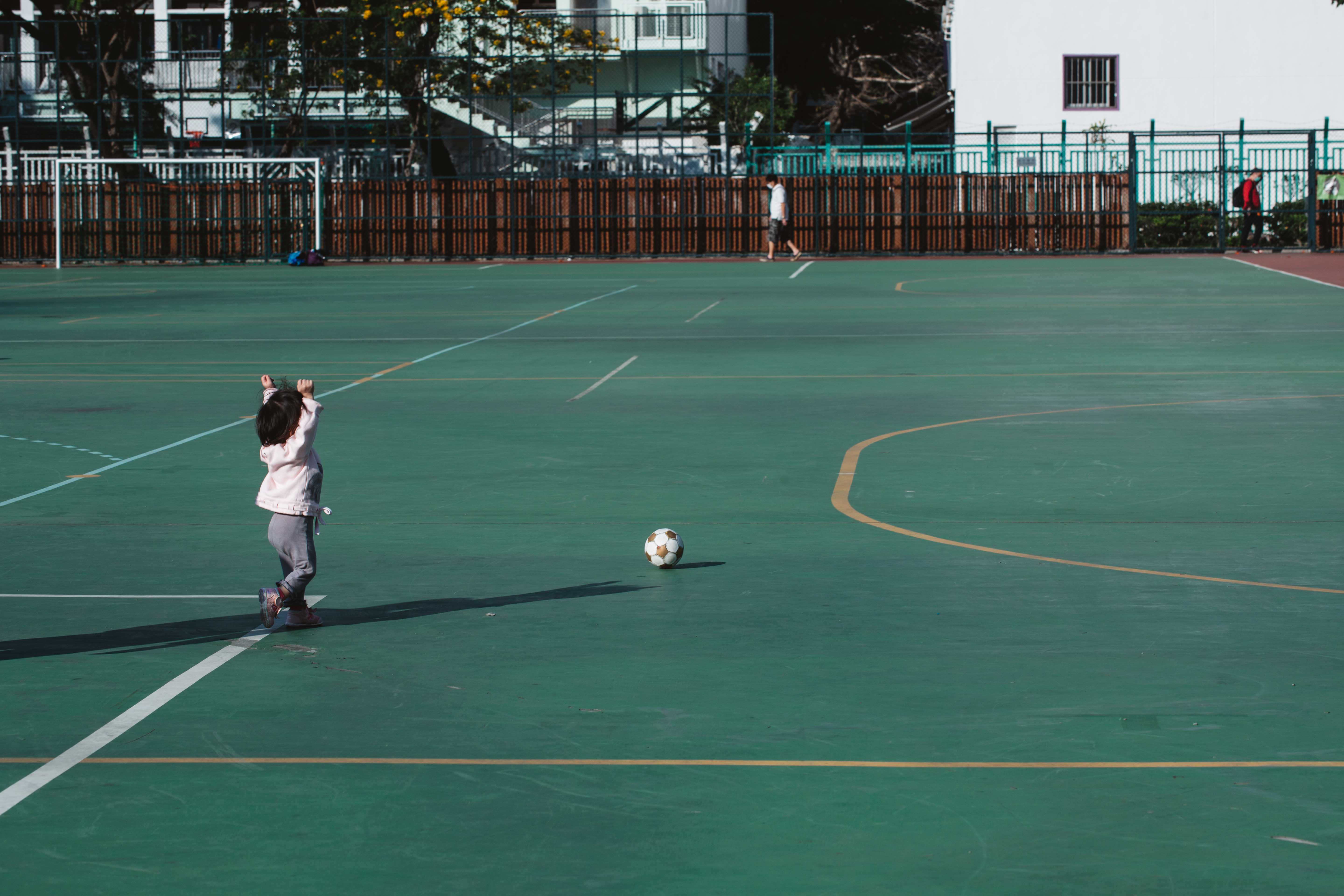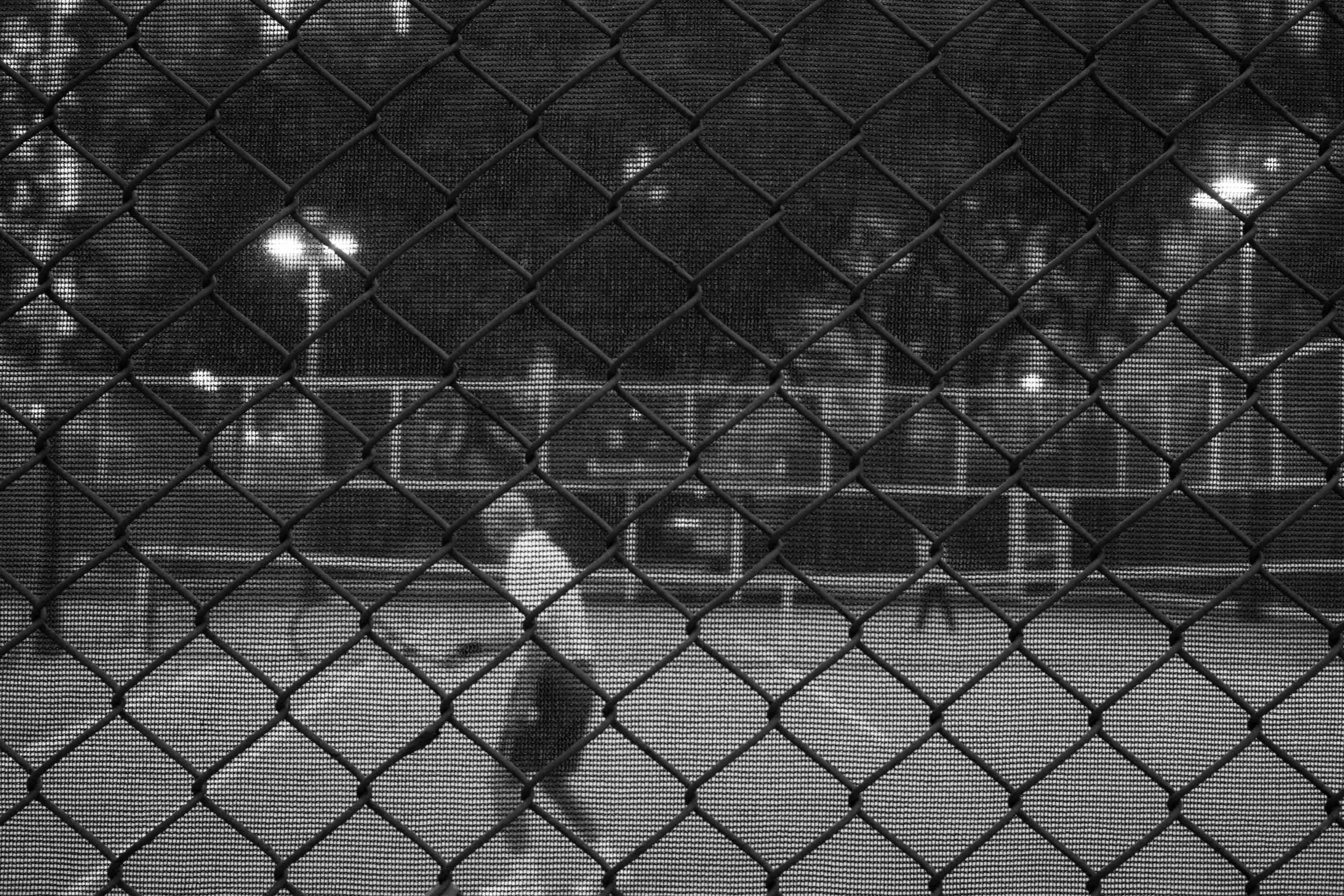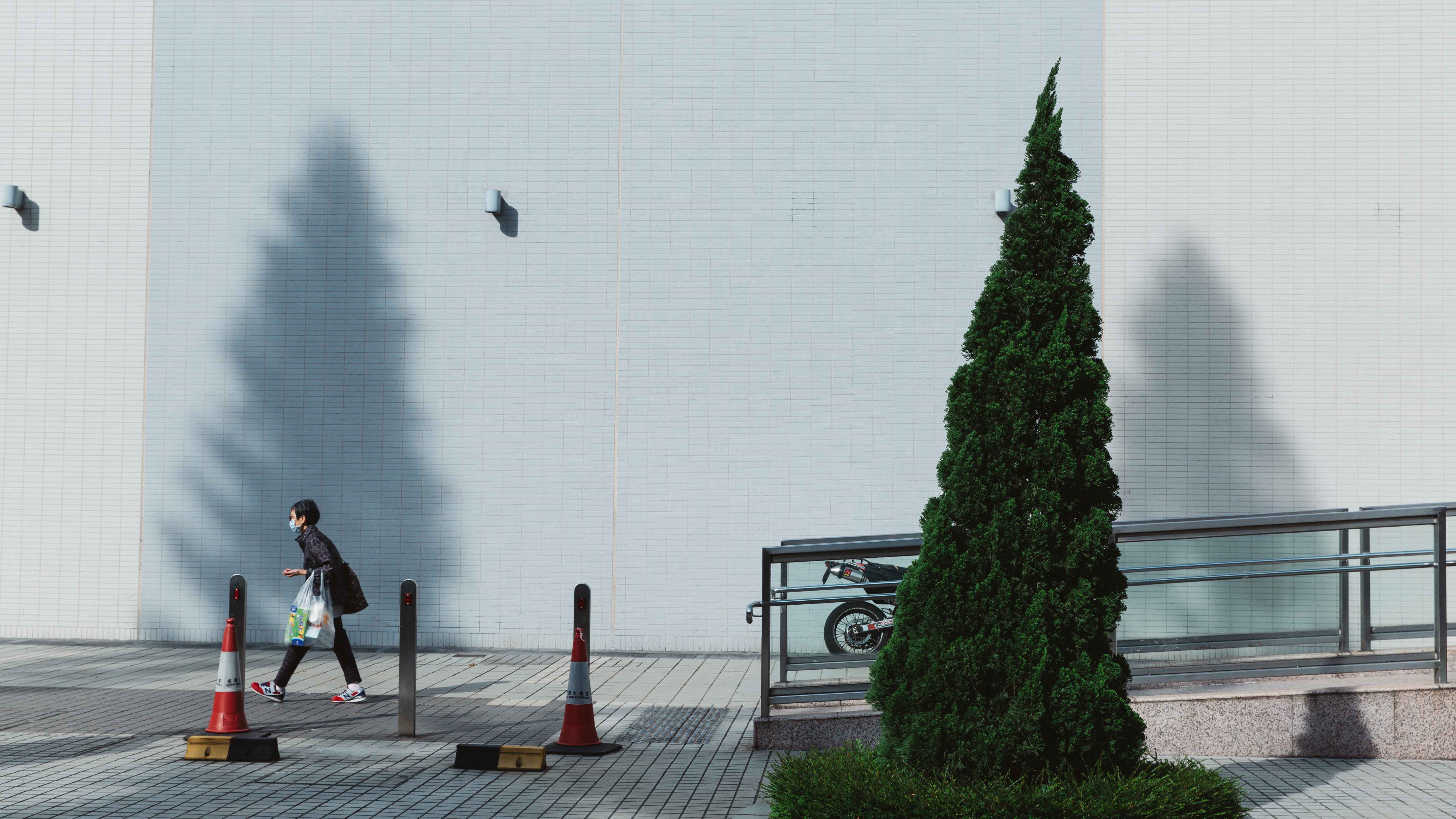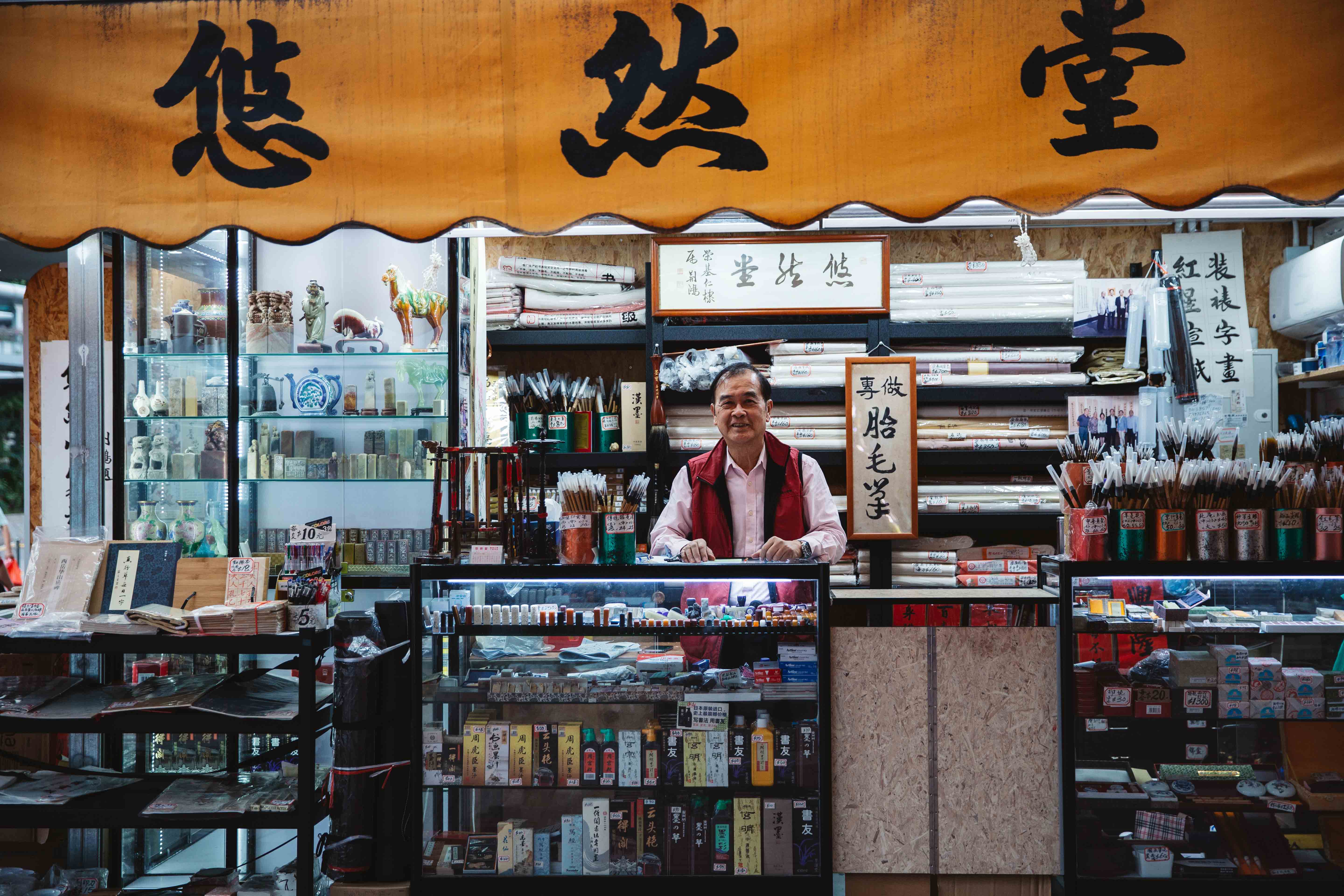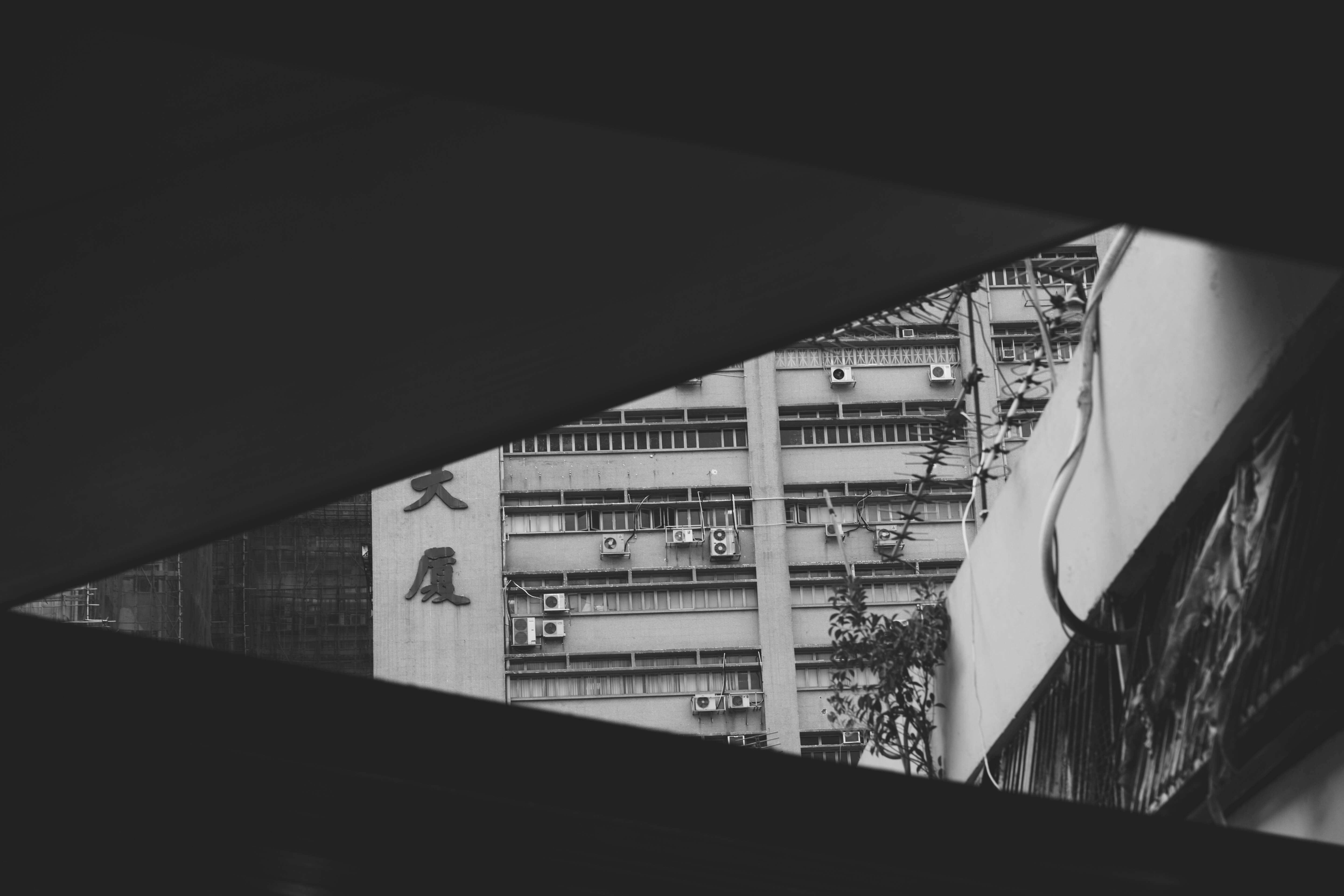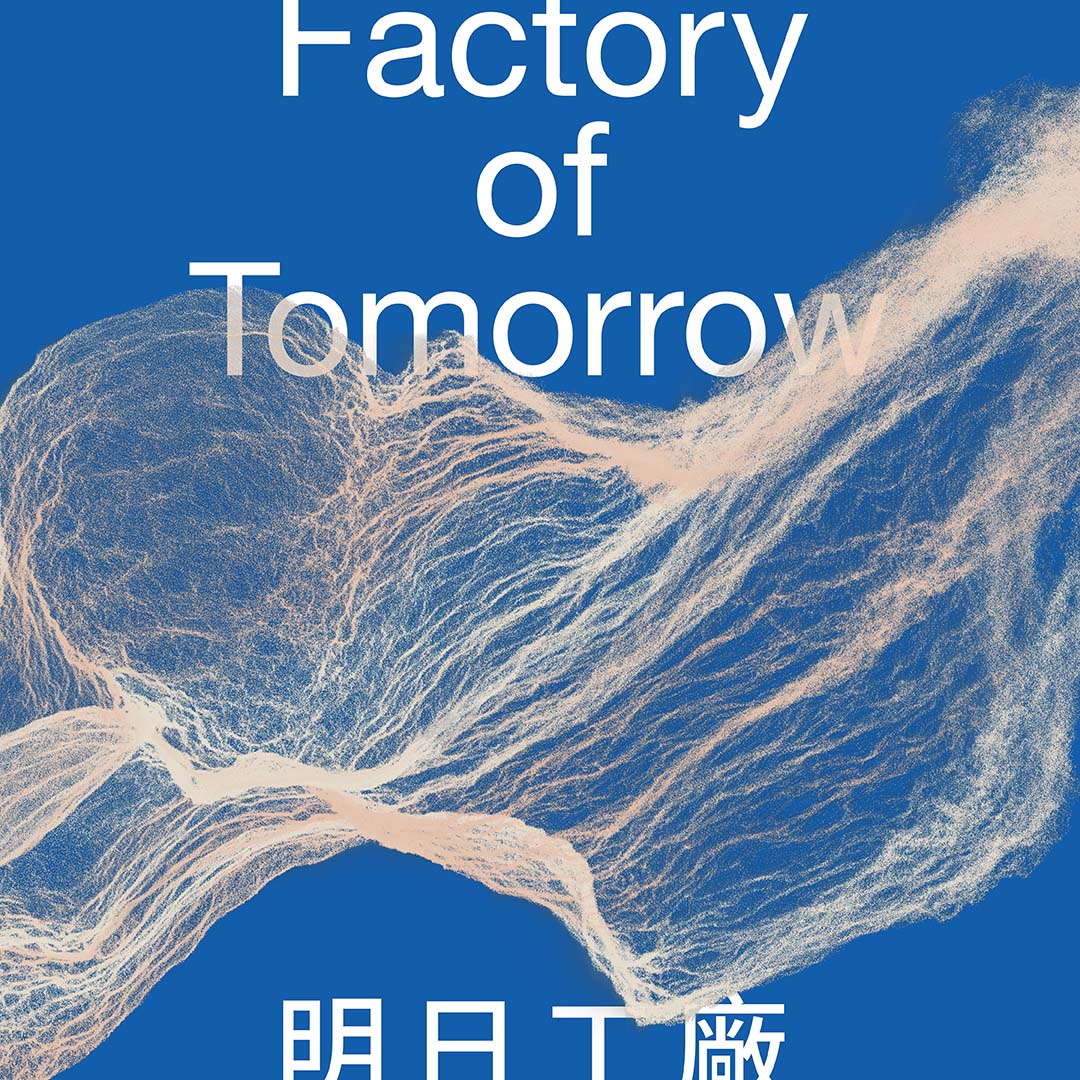The Mills x Koko Coffee Roasters: “A Window Into Tsuen Wan” Stephanie Teng Photo Exhibition
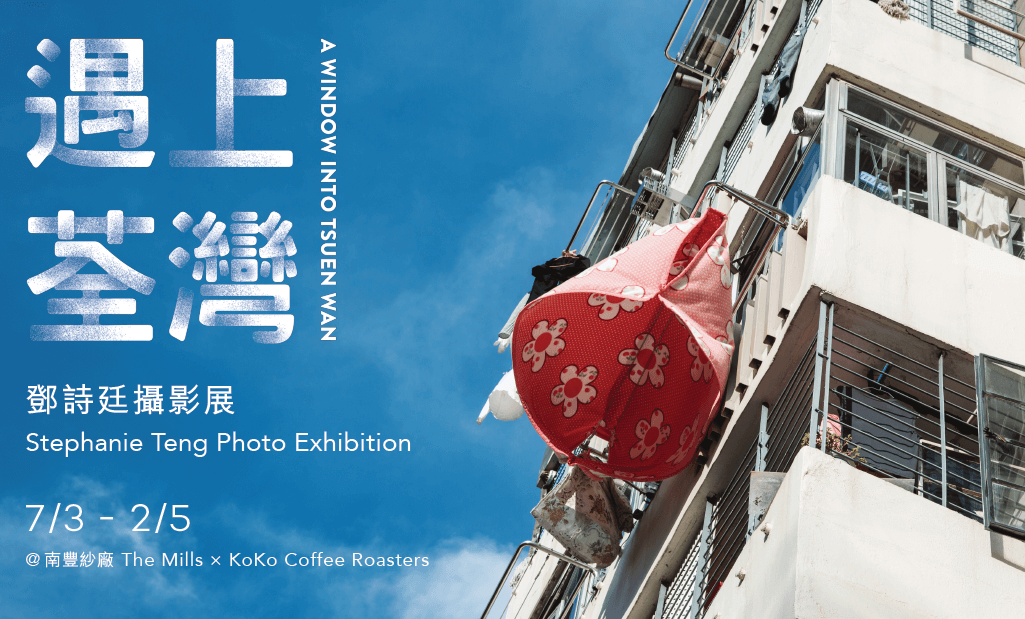
“A Window Into Tsuen Wan”
Introduction
The Mills hopes that this exhibition brings attention to the uniqueness of your own communities, and by taking part we wish for you to appreciate the little details that make the area special to you.This year, we chose Tsuen Wan to be our starting point, beginning with a photography exhibition by Stephanie Teng at Koko Coffee Roasters from 7th March to 2nd May. Stephanie’s photos cover the changes in Tsuen Wan community due to industrial development, and documents key zones that have served as work, rest, and leisure areas including Fok Loi Estate, Heung Che Street Market, Sha Tsui Road Playground and Tsuen Wan Town Hall. Her photos evoke deep thoughts of the many stories Tsuen Wan holds and allows us to view things in a new perspective.
We are also grateful to have arts and culture reporter BoBo, who shares her interviews on various parts of Tsuen Wan’s development, creating five unique Tsuen Wan stories for the audience.
Concept
Every corner, street, building, and citizen in a city are like the characteristics, clothes, and personalities of the individuals that live within them. All these elements come together to form the face of a community, allowing each community to stand out with the traits and features that make them different. Communities are where we work, live, and raise our families. They are the origin of how we interact with each other, and a place where all of our memories are stored, whether they are happy, sad, or angry. Observing carefully our communities allow us to appreciate its details and special qualities, stepping back to see the wonder of it all.
The buildings making up The Mills have been standing in Tsuen Wan for over half a century, and have witnessed the many transformations that Tsuen Wan has gone through. As a first-generation small-scale city, the area has seen industrial development, economic restructuring and the blossoming of Hong Kong. Tsuen Wan went from an industrial district in the 50s and 60s, to a more diverse area with roads, estates, libraries, a Town Hall, playgrounds and a growing number of leisure facilities. Each of these play a different role in the evolution of the area.
We hope that this exhibition brings attention to the uniqueness of your own communities, and by taking part we wish for you to appreciate the little details that make the area special to you. This year, we chose Tsuen Wan to be our starting point, beginning with a photography exhibition by Stephanie Teng at Koko Coffee Roasters from 7th March to 2nd May. Stephanie’s photos cover the changes in Tsuen Wan community due to industrial development, and documents key zones that have served as work, rest, and leisure areas including Fok Loi Estate, Heung Che Street Market, Sha Tsui Road Playground and Tsuen Wan Town Hall. Her photos evoke deep thoughts of the many stories Tsuen Wan holds and allows us to view things in a new perspective.
We are also grateful to have arts and culture reporter BoBo, who shares her interviews on various parts of Tsuen Wan’s development, creating five unique Tsuen Wan stories for the audience.
If you would like to read more on Tsuen Wan, we have selected nine stories from the Writing Hong Kong project by The House of Hong Kong Literature, which will be displayed in the Between Haru café located on 1/F of The Mills.
The second part of “A Window into Tsuen Wan” will showcase illustrator Onion Peterman’s work in Heung Che Street Market starting from 3rd May. With his iridescent and colourful style, the views of Heung Che Street Market are vividly recorded. All these works will be displayed in Mou 1 Mou on G/F of The Mills. Mou 1 Mou will also be making their desserts using ingredients from Heung Che Street Market so that the audience can literally taste the uniqueness of Tsuen Wan.
About the Photographer

Her creative vision is heavily shaped by her background in psychology. She often uses the process of photography to capture the vulnerability of the human condition and explores the medium as a form of therapy and empowerment. Having first fallen in love with black and white film photography, she often returns to that process as a metaphor for life – helping others see the world with empathy through new perspectives.
About the Writer
CHOY PO YINGraduated from the dept. of Journalism and Communication, writer of “Salt to the Sea: The Interviews of the Hong Kong Post-90 Generation”, and freelance art and culture journalist, editor, art admin.
Seats under the Foi Lok Banyan tree
Uncovered a shared memory: Fuk Loi Estate and laid-back under the tree.
Read More
Uncovered a shared memory: Fuk Loi Estate and laid-back under the tree.
I remember that it was a damp, cool noon in the early spring. People, like animals after hibernation, were in a hurry walking across those crisscrossed paths and roads. The parking spaces of those trunks stopping near the industrial buildings were soon be replaced by another batch of trunks once after they drove away. Tail lifts moved down in no time; pallet jacks were taken out shortly. That noon was filled with the smell of blood, sweat and toil of those hardworking workers.
If, we all say that, a bustling city implies the prosperous times, will we also take a desolated and slow-paced alley as a sign of declining and fading away? Once you pass through that groups of trunks, leave the Tsuen Wan Industrial Area, then walk towards Tai Chung Road, and finally cross the road by stepping on the leaking footbridge, there will have no more tall and concentrated industrial buildings but only low-density estate, Fuk Loi Estate, appears in front of you. With nine blocks in total, in which some are I-shaped, seven-storey buildings and some are L-shaped, sixteen-story buildings, this estate is like a combination of dispersed Tetris or bricks lying casually around the floor if we take a bird-eyed view of it. It is also an oasis amidst the hustle and bustle.
Sweet after sweat
Turn the clock back to the 50s. In order to implement the concept of small-scaled city, the British Hong Kong government built a new town (also called Satellite city) in Tsuen Wan area after massive reclamation. It can satisfy every need including food, clothing, housing, transportation, and most importantly, provide sufficient job opportunities to people living there. Fok Loi estate was built on one of the reclaimed lands. Names represent luck. Each block is named with the word ‘Wing’ (eternity) as an initial, followed by Cheung (Prosperity), Hong (Health), Hing (Thriving), Tai (Safe), Ka (good), Lok (pleasant), Ning (stable), Ting (settled) or Lung (flourishing), signifying this place has always been with good fortune after sixty.
Take a stroll downstairs and walk through the public and the private area divided comfortably by the blocks. The refurbished children’s playgrounds, the weather-beaten and bleaching facades and corners as well as the rusty and obsolete metal windows are all murmuring their half-century-long experiences.
Those days were filled with the giggling and pitter-patter of tiny feet from the corridors and the park. We saw each other greeting and caring, gossiping about others trifles when they bumped into their neighbours. We saw youthful ladies concerning their friends’ relationships and looking forward to their big days after getting off work from the near mill. Even though life after marriage is as simple as salt and pepper; even though life after marriage is not as dreamy as the prince and the princess, their handworks and penny pinching have already written them the best story, the story about endeavouring and spirit.
It was all about vitality and bustling, and it is all about tranquillity after all. The smoothness and glorious have been reduced to wrinkles and grey. There are more faint footsteps with cane tapping sounds than joyful sweat from children in the park and corridor. The old stores are always there, but they no longer work from day to night. They serve this place, in a leisurely manner and comfortable pace, as usual.
The bigger the tree, the better the shade. Let her share more of her feelings.
There are rushing passers-by everywhere, but not under the giant banyan tree opposite to Wing Tai House. Surrounded by the iron-wired seats, the banyan tree acts as a shade and attracts the elderlies to enjoy the cool. Compared to staying at home alone, taking a nap and rest quietly by themselves; or spending time with their buddies and chit-chatting about their daily lives are way better.
An old man is listening to news on his mini radio. Beside him, a little boy, who may be his grandson studying in primary school, is riding a scooter around the tree. It seems like he has more spare time because of the current class suspension. There are two old ladies sitting opposite to them. They lift one of their legs and swing their calf, which, as they believe, contributes to blood circulation.
“Did you know? That pharmacy restocks mask. $85 for one box!’ She pats her thigh.
“My young son just gave me one. I can give you some if you need.’ The other she places her arms on the walking frame.
“I have. I just never saw any mask that needs me $85…’
‘Yeah, we are like burning joss paper now. Everything is getting more expensive.’
The shade of banyan tree blocks every disturbance and only god-given serene moments exist. Everyone meets and connects with their soulmates here. No matter how fast the time passes; even though ‘old school’ refers to those who cannot jump on the bandwagon; regardless of how quick society changes, friendship, relationship-defined obligations and communication are the fuel of the evolving community.
Followed by the ever-expanding Tsuen Wan Town Footbridge Network, passers-by can travel around Tsuen Wan more conveniently. We see more and more places are used as the transportation hub in order to enhance mobility. But, even so, will there be any more spaces or corners designed for our flowing sensations and feelings?
Sha Tsui Road Playground
We meet, even though we are in different speed: Sha Tsui Road Playground
Read More
We meet, even though we are in different speed: Sha Tsui Road PlaygroundIt is definitely not an endearing afternoon. The sudden shower bedews non-waterproof clothes. The glasses are covered with droplets, getting the eyes blurry. I have no choice but to lower my head and walk against the rain. I glimpse at the roadside – a park entrance! I decide to take cover from the rain in that park.
‘Look out!’ A flying football splashes the puddle near me and wets my trouser-leg. A boy wearing a blue and yellow jersey ran towards me. His eyes had always been on that football. He then grabbed the ball, turned back and ran back to the center of the stadium, continuing the unfinished training with his mates.
I collect myself and realise from the words ‘Sha Tsui Road Playground’ at the top of the spectator stands. This sports and recreation facility is located at the junction of Sha Tsui Road and Tai Ho Road, which is a street away and few steps far from the shopping malls and the markets near Yi Pei Square. Though it is with the word ‘playground’, there have no amusement facilities like the slide, the swing or the seesaw. Instead, two connected 7-a-side, hard-surface soccer pitches, three tennis courts, some chess tables, pavilions and elderly fitness corner are found. Except for the tennis courts, other facilities are free-of-charge. The sports ground is used to hold mid-autumn lantern displays & carnivals and Lunar New Year Fair on festival occasion. Students from nearby schools also have their PE lessons here. Well, it is not exactly a playground as it is named, but it is for sure a
multi-purpose open space.
Those who cannot catch the time, are being abandoned.
The intermittent shower lets up soon. People fold up their umbrellas and some start leaving the covered spectator stand, walking back to the stadium. I leave there and turn into the long, narrow aisle beside the tennis courts. There are rows of benches with a few old men coming alone. It seems like they have been sitting here for a while, presumably before the shower, as shown by the droplet on their jackets. Each of them occupies one end of the bench. The silence between them set off the loud and clear of the fragmentary chirping. Some are with dull, absent light in their eyes, occasionally focusing on the passers-by. Some are staring into space and some are dozing off.
If time is faithful to everybody, is it also fair to each of them in the aisle, where time is stretched and slow down? In this open space, the concrete spectator standing in the middle separates the poles apart – the stadium portraying youth and energy and the aisle being hidden and isolated. Called it by the fine-sounding name of ‘public’ and ‘share’, we coexist while taking what we need. However, bluntly speaking, the misunderstandings and disregards behind are pointing out that, our fantasy of harmony never exists. It is another name for ‘Do not cross the line’.
We are all here in this wonderful world, no matter fast or slow
Beep!
Followed by the whistle, the kids around spilled onto the coach in the center.
‘Did you know that he was behind you? If he pushes you too hard and passes to his team…and you, once after the penalty, you can just run to the opposite team position to prevent them from intercepting…’ The coach commented on their performance in one breath while the kids were paying attention at the same time gasping and wiping the sweat from their foreheads. The coach whistled after, waved his hand and kicked-off. They ran again, chased the ball and were waiting for a golden moment to set the pace.
Outside the pitch, two women leaning on the railings are gazing at their kids who are in training. There is one man with casual sportswear doing pull-ups with the bar. Some are pacing back and forth, stretching their bodies to train their speed and power. A middle-aged man is sitting behind the mesh wire, which is behind the goal, paying close attention to the food and drink show video on his phone with his takeaway.
Football connects kids and adults. Experience and knowledge are also transmitted when passing the ball. People of all ages and with different backgrounds are gathered in one single stadium and each of them is chasing their own goal, in a different way.
‘Hey!’ A kid shouts to his teammate, reminding him to pay attention to the aggressive; to remind him that to win or to lose, is all in a moment. Competition exists in both sports and society. Survival of the fittest. It seems to be doomed that society is to be ruled by the young and talented. But the community should also belong to and be built by everyone. Isn’t it?
Tsuen Wan Town Hall
Those rejected starts the memory: Tsuen Wan Town Hall
Read More
Those rejected starts the memory: Tsuen Wan Town HallThe ‘Temporary Closure’ announcement can be sharply seen at the door of Tsuen Wan Town Hall.
An elderly couple who wears simply is walking towards the lobby of the Town Hall. It can be seen far away that the Town Hall is closed. The man checks his watch to make sure that it is already 9, which is supposed to be the opening time of the Town Hall. The woman picks at the man’s sleeve, telling him to have a look on the announcement upstairs near the door.
They realize what is happening after carefully reading – in view of the development of the novel coronavirus infection, all the performance venues and all activities held at the venues are temporarily closed and canceled until further notice. They deride and mock each other’s worse memories and old age. ‘We had a wasted trip!’ The old lady said disappointedly. ‘It’s ok, just take it as a walk. We have nothing to do.’ Her husband holds her arm and they leave together.
There is no fading pass, only the missing moment.
Though the Town Hall is not open, there is still a plaza nearby with a fan-shape stage and a two-story, round and covered steps acting as spectator stand. It is available for hire by non-profit organizations for holding non-commercial activities. When it is not rented, it is both a public space and a park. The town hall was completed as far back as 40 years ago. It is designed as a well-equipped performance venue as well as a convenient public open space for the residents nearby.
The Town Hall looks the same for many years -grey off-white external wall, decorated with light dove cubes on two sides. It stands out because of the smooth and sharp lines and its minimalistic design. It perfectly matches the great numbers of surrounded modern buildings and malls. Built with high-quality auditorium, cultural activities hall, exhibition gallery, conference room and lecture room hidden under its simple and plain appearance; the local musicians also call it ‘the best venues for Classical music with the finest sound’. Here captures the collective memory of the musicians, artists or even generations of Tsuen Wan residents. We call it memory because it is fading away, from us and from our view.
I remember the day when I put on my dark-red enamel leather high heel without sticking the tape properly. The black dress just fitted me well, I tried several times in front of the mirror in order to make a perfect mini butterfly knot on my waist. I wish I am how I looked. I wish nothing changed. Although that pair of high heels is still in good quality, I seldom wear it now. It rubs against my heel and the bottom was so hard that makes me feel toilsome. I trotted along the footbridge towards him as I did not want him to wait for me – we had been waiting for each other for so long. We missed the play two years before. That is why we dated each other to watch the play again one year in advance.
Classical works can be played again and again. Even though they were created a few decades before, the contents are still the same. But in reality, everything can be changed in two years. For so long, he and I were swamped with work and distanced by eight time zones. Piles of unfinished topics are stacked between us. We managed to meet each other again in Hong Kong later, but soon there was the social movement. We argued for so many times and could no longer bear with each other. ‘Save all these to the day we watch the show. Ok?’ Our conversation ended after this.
And, in accordance with expectation, no one sat beside me. I put the handbag onto the empty seat and took off the high heel. My swelling and red heels and toes told me that they had already been rubbed for many hours. It was so painful that even after the show was finished, I rather walk on the freezing floor with my bare feet than put on the heels, maybe I didn’t have that courage.
It ends. It all ends. My eyes were red with weeping but it’s not because of the show. The show was not as impressive as I had expected. What touched me is that, I over-put myself in the show and I was just a little bit too much into it. That is.
Don’t forget the invisible while withholding the visible
The old couple takes a seat in the nearby park. ‘the government has proposed in the Budget of previous financial year that they set aside at least $200 billion to consolidate several government sites. The Town Hall may soon be removed. And you see, it may be closed for another few months, or may be closed until the day of its removal…’ The husband says. ‘It’s so sudden…I have been here for 20 years!’ The wife shakes her head.
‘See what are near you? They are all expensive private residential property that I can’t afford. It is a waste if this piece of land is used for entertainment. I know nothing about art and culture, they all need money! If you ask me, a free place for me to sit down and waste my time is enough,’ the old man sitting next to them cut into their conversation.
Is only land and space enough for a community? I wonder.
Yau Yuen Tong
Yau Yuen Tong: Conform to nature, accept destiny, everything depends on human effort.
Read More
Yau Yuen Tong: Conform to nature, accept destiny, everything depends on humaneffort.
Tear off a page of the calendar. It is now the 10th day of the first lunar month calendar.
Mr. Lu starts his day at ten in the morning as usual. He takes out rolls of red banners under the counter and puts them at the door for sale. The rain cover above the entrance is written with ‘Man Fong Yung Ben’ (Stationeries) and ‘Yau Yuen Tong’. The three glass-frame cabinets are placed with vases, carved stamps and ceramic statues. We do not know if they are for sale or for collection.
He first ran his own stationery store in Yau Ma Tei, then moved to Kowloon City. He decided to move his store to Tsuen Wan in 1969 when he hiked there. At that time, the government was implementing the new town idea in Tsuen Wan. There was green land and coast, as well as many newly completed infrastructures and more were being built. The store had been located in Chuen Lung Street for 30 years and was moved to Tai Ho Road ten years before.
A craving is a gold. A stamp is a history.
Mr. Lu’s nimble fingers owe to learning painting, calligraphy and art at his early stage. The craft had to be practical and
functional in old times. He made his living from craving seals, printing miniature things such as recipes and writing papers. The time when the textile industry was booming and mills were everywhere in Tsuen Wan, he craved loads of seals for mills, indicating the tension of yarns. The operation of large-scale factories attracted the establishment of small- and medium-sized factories nearby. Whenever they need company seals or recipes, Mr. Lu is their choice.
Time has changed, the demand for company seals in the business field reduces a lot, but it still has its position. ‘Besides
companies and factories, kids needed it also. They had to open a bank account for themselves. Their parents will make them a seal because they cannot sign their names properly and easily. But now, the former residents have grown old, they will find me for seals when they have difficulties in holding a pen and signing their names.’ Mr. Lu says. The seal witnesses the stages of life. Half-decade twist and turn of Tsuen Wan is also reflected in the changing demand for it. ‘They are both my customers. The father found me for recipe before and now, the son finds me for craving seal.’
His store is for making his living, but also for his interests and for his friends to gather. Mrs. Lu sometimes takes care of the store after resigning as a teacher. It opens from Monday to Saturday, rain or shine. Mr. Lu is willing to share everything no matter if you chit-chat with him or ask him for art supplies and advice.
Be self-dependent and make fun with your own hands
At the same time, a man comes with a document asking for a suitable brown manila envelope. Mr. Lu and his wife are searching the cabinets and get a few of them to let the man choose. ‘I do this for my interest, not money now.’ He started selling the writing brushes, ink sticks, ink stones, papers and transitional Chinese crafts ten years ago. It changes from a seal and printing store to a ‘private study hall’. Are the calligraphies and paintings, the writing brushes and the decorations for sale or for display? No one cares. They are the same.
The inscribed board of ‘Yau Yuen Tong’ is written by him. It is displayed on the holder in the middle of the store. He says that he favours chrysanthemum and wanted to name it as ‘Hei Guk Tong’, but his teacher told him to be tactful and implicit which allows more rooms of imagination. Therefore, he took the reference from the poem Drinking Wine 5 written by Tao Yuanming, a Chinese poet who lived during the Eastern Jin and Liu Song dynasties. ‘I pick fenceside asters at will; Carefree I see the southern hill.’ It inspires Mr. Lu that even if he is in a small place, he can still immerse and devote himself to what he likes – the art. Mr. and Mrs. Lu work in perfect cooperation. Even if there is a sudden rain, they will calmly pack up the goods outdoors and pull out the rain cover. Seize the day, just be calm.
He can either crave or make. He writes and draws life vividly and adapts to social changes. ‘I will never retire.’ He says firmly, but at the same time, relaxed.
When we are all rushing for new ideas, have we even thought of what we really need?
The Agile Laundromat
Capturing the eternality from the ever-changing era: The agile laundromat.
Read More
Capturing the eternality from the ever-changing era: The agile laundromat.‘Here is … $60. Do you need sterilisation?’ Mr. Tse put aside that pack of dirty clothes with his left hand and write a receipt at the same time.
‘Sure.’ The domestic helper nods her head.
‘Come and pick it at 6.’
The next checkpoint of those dirty clothes is the silver-grey washing machine. Shutting the glass door and pressing the ‘start’ button, the water is being poured in with the accompany of the bubbles from the detergent. The drum spins the clothes and water at a high speed.
It is like the roulette; it is like the clock. It rotates for countless months and years, washing away an innumerable amount of ingrained dirt. From washing and drying, dirt and filth are being removed. But is the cleaning cloth the same as the primary one? Is the fresh cloth the same as the previous one?
The laundry store on the floor of Wing Ka House, Fuk Loi Estate provides laundry service, but we see ‘The Agile Laundromat’ on its steel inscribed board. The old, instead of current version of the Chinese character ‘Coeng’ (place) is used. Prominently displayed while keeping it low profile, the signboard is telling everybody his life story started 50 years ago.
Making a living is for life. Life is also about ‘hard work pays off’.
After receiving the payment, Mr. Tse runs to the storage room at the back of the store immediately. He then picks up a few pages of document, and puts it to the counter. In no time, he waves to the new customer, asking him to weigh the dirty

